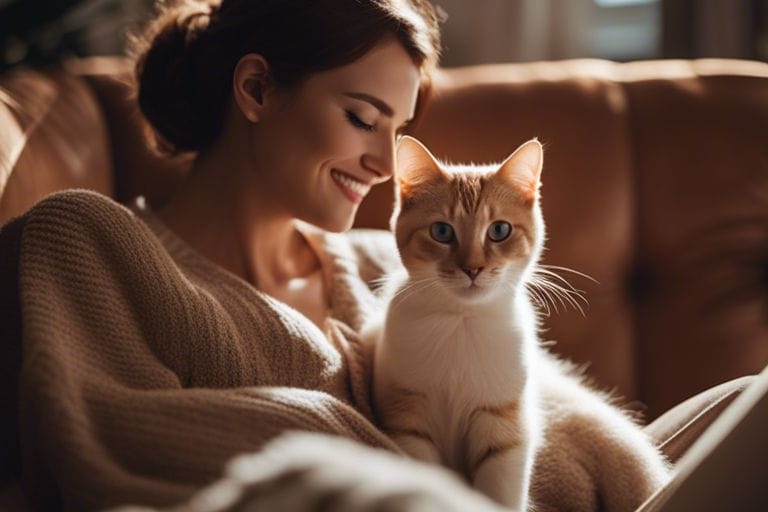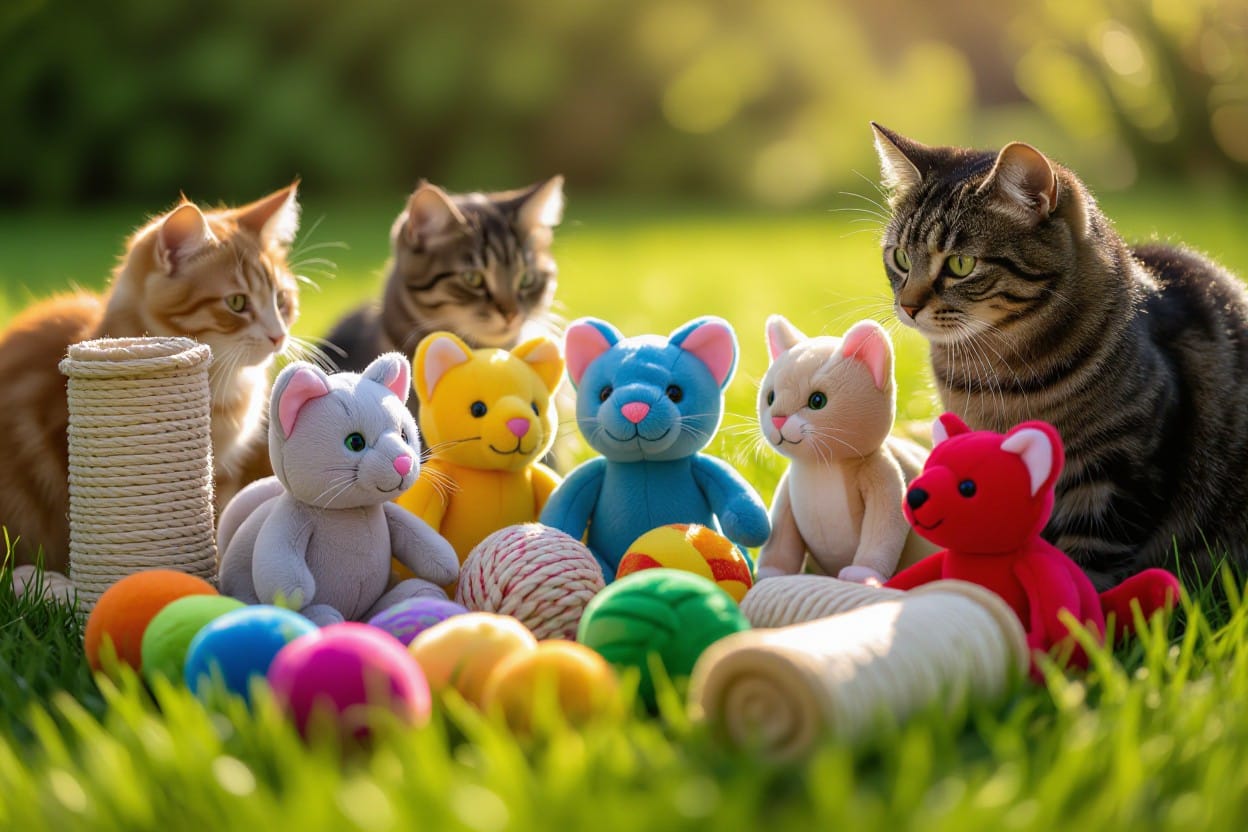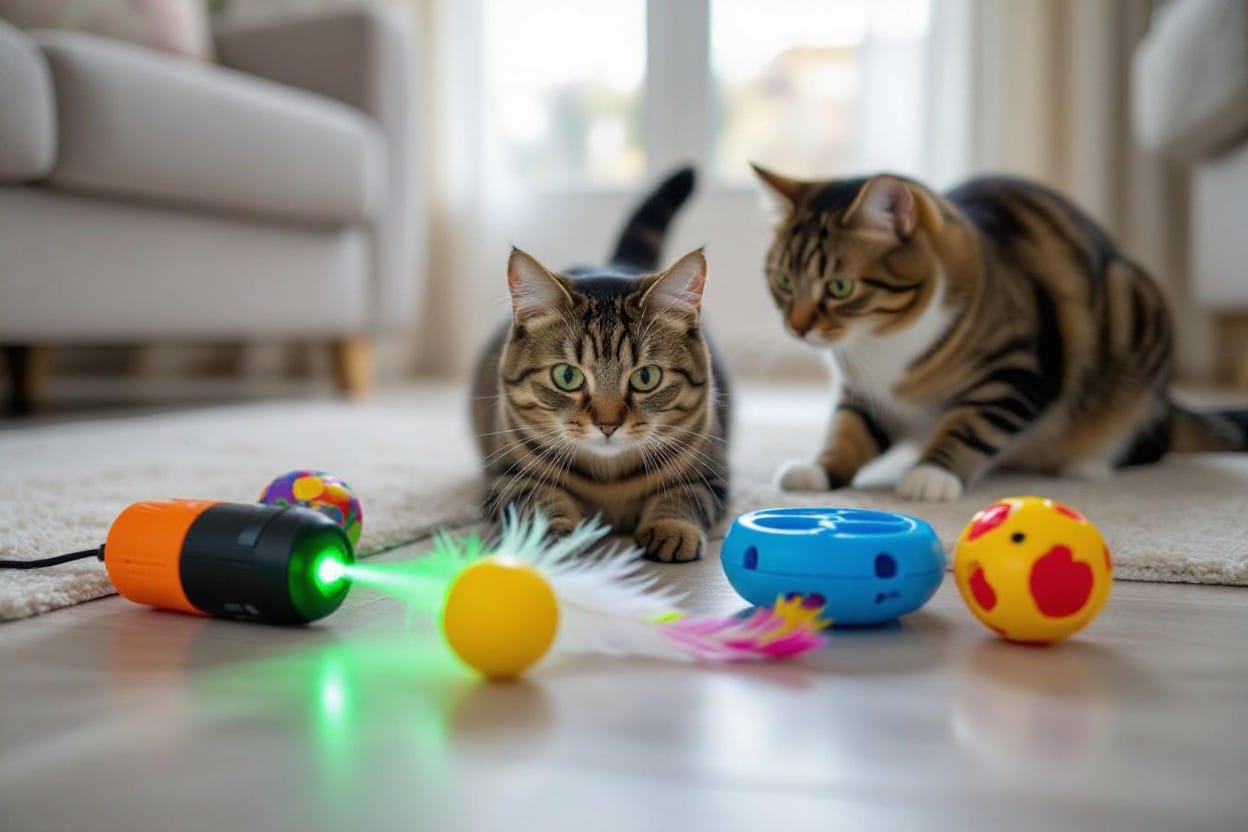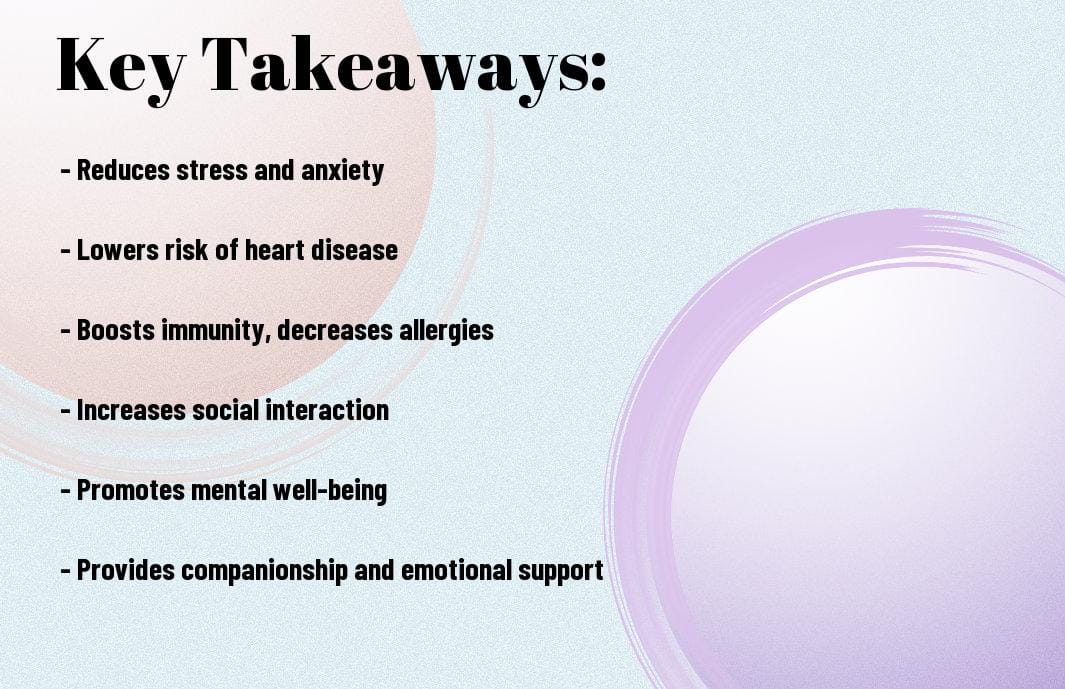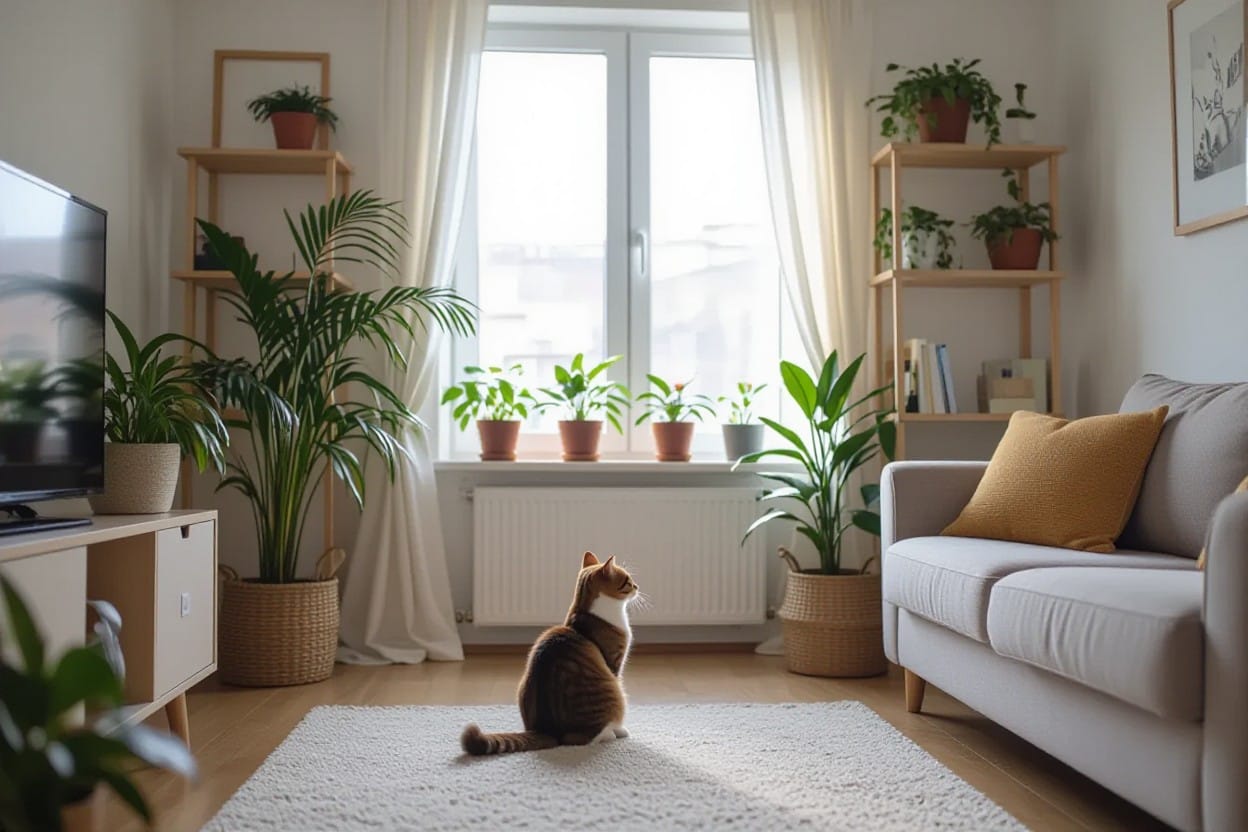Just what is it about cat lovers that seems to set them apart as happier individuals? As it turns out, there is a wealth of scientific research to support the idea that owning a cat can improve mental and emotional well-being. Studies have shown that the act of petting a cat can release feel-good hormones like oxytocin and reduce levels of the stress hormone cortisol, leading to an overall sense of calm and contentment.
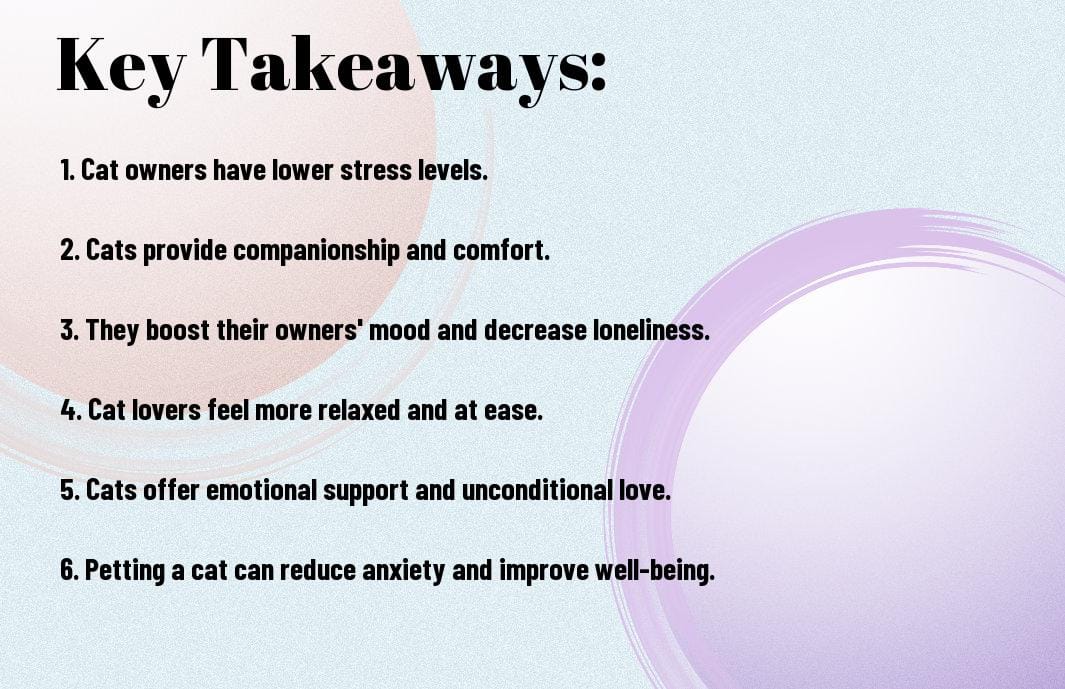
The Psychological Connection Between Humans and Cats
The History of Human-Cat Relationships
Between humans and cats, there exists a rich history that dates back thousands of years. Cats were domesticated by ancient civilizations like the Egyptians to control pests such as mice and rats. Over time, cats became not only companions but also symbols of grace and mystery. This history has fostered a deep bond between humans and cats that continues to thrive in modern society.
The Emotional Bonds With Felines
Any cat lover can attest to the strong emotional bonds that form between humans and their feline companions. Cats have a unique way of understanding and responding to human emotions, providing comfort and companionship in times of need. Research shows that interacting with cats can lower stress levels and boost overall mood, leading to happier and healthier individuals.
Understanding the psychological connection between humans and cats sheds light on why cat lovers are often happier people. The unconditional love and companionship that cats provide play a significant role in promoting emotional well-being and mental health. This bond transcends words and is felt deeply by those who have experienced the joys of having a feline friend.
The Science of Happiness
Understanding Happiness and Wellbeing
Happiness is a complex emotion that goes beyond simply feeling good. It involves a sense of satisfaction with life, positive relationships, a sense of purpose, and the ability to cope with life’s challenges. Wellbeing, on the other hand, is a broader concept that encompasses not just happiness but also physical health, social connections, and personal fulfillment. Research in the field of positive psychology has shown that cultivating positive emotions, engaging in meaningful activities, and nurturing close relationships are key factors in promoting happiness and overall wellbeing.
How Cats Contribute to Psychological Health
Understanding the link between pets, particularly cats, and psychological health is necessary in appreciating the benefits of having a feline companion. Cats provide companionship, comfort, and a sense of routine to their owners, which can help reduce stress, anxiety, and feelings of loneliness. Simply petting a cat has been shown to release oxytocin, a hormone that promotes bonding and reduces levels of cortisol, a stress hormone, in the body. This physical interaction with a cat can have calming effects on the nervous system and contribute to a sense of wellbeing.
To explore deeper into the ways in which cats contribute to psychological health, researchers have also found that the rhythmic sound of a cat’s purr can have therapeutic effects on humans. The frequency of a cat’s purr falls within the range that has been shown to promote healing and reduce feelings of stress. This soothing sound can create an environment of relaxation and comfort, which in turn can have positive effects on a person’s mental and emotional state.

Cat Lovers’ Personality Traits
Despite the stereotypes that portray cat lovers as aloof or introverted, research suggests that they possess a unique set of personality traits that contribute to their overall happiness and well-being.
Characteristics Common Among Cat Lovers
Lovers of cats are often described as independent, creative, and introspective individuals. They value solitude and are comfortable with their own company, which can lead to a strong sense of self-awareness and resilience. Cat lovers tend to be observant and sensitive to their surroundings, appreciating the small details in life that others may overlook. Their empathetic nature allows them to form deep bonds with their feline companions, understanding and respecting their need for space and autonomy.
Comparisons to Dog Lovers
To better understand the differences between cat lovers and dog lovers, let’s break down some key distinctions:
| Cat Lovers | Dog Lovers |
| Independent and introspective | Social and outgoing |
| Prefer quiet and calm environments | Enjoy active and lively settings |
| Value flexibility and freedom | Appreciate structure and routine |
For instance, while cat lovers may find solace in a quiet evening at home reading a book with their feline companion by their side, dog lovers might prefer the excitement of a brisk walk in the park with their energetic pup. These contrasting preferences reflect deeper aspects of their personalities and lifestyles.
Cats as Emotional Support Animals
The Role of Cats in Mental Health Support
Health professionals often recommend pets as a way to cope with mental health issues, and cats, in particular, are recognized for their calming presence and ability to provide emotional support. The gentle companionship of a cat can help reduce feelings of loneliness and anxiety, offering a sense of comfort and stability to their owners. The simple act of petting a cat can release oxytocin, a hormone that promotes bonding and reduces stress levels.
The Benefits of Purring and Cat-Human Interactions
Cats have a unique way of communicating with humans through purring, which has been linked to a variety of health benefits. The soothing sound of a cat’s purr is not only comforting but also has been shown to lower blood pressure, reduce the risk of heart disease, and promote feelings of relaxation. Engaging in interactive play and cuddling with a cat can also boost mood and create a sense of connection, further enhancing the bond between human and feline.
Purring: The act of purring is a cat’s way of expressing contentment and can also serve as a form of self-soothing. The frequency of a cat’s purr falls within a range that has been shown to have therapeutic effects on both the cat itself and its human companions. When a cat purrs, it creates a calming atmosphere that can help alleviate anxiety and promote emotional well-being.

The Impact of Cats on Stress and Anxiety
Studies on Cats Reducing Human Stress Levels
Many studies have shown that owning a cat can have a positive impact on reducing stress levels in humans. Interacting with a cat, such as petting or playing with them, can help release oxytocin, a hormone that promotes relaxation and reduces stress. This interaction can also lower cortisol levels, known as the stress hormone, in the body.
The Soothing Effect of a Cat’s Presence
Studies have demonstrated that simply being in the presence of a cat can have a soothing effect on humans. The soft purring sound of a cat has been shown to lower blood pressure and heart rate, promoting a sense of calm and relaxation. This calming effect can be especially beneficial for individuals facing high levels of stress or anxiety in their daily lives.
Reducing anxiety and stress through the presence of a cat not only benefits the individual but can also create a peaceful environment at home.
The Role of Cat Content in Digital Happiness
The Popularity of Cats in Social Media and its Effects
Nowadays, it’s hard to scroll through any social media platform without stumbling upon a cute cat photo or video. Cats have taken over the internet, and there’s a good reason for it. Research shows that looking at pictures of cats can have a positive effect on our mood, reducing stress and increasing feelings of happiness. In fact, the presence of cat content in our social media feeds can play a significant role in boosting our overall well-being.
Memes, Videos, and Viral Cats: A Digital Phenomenon
For many, cats have become more than just pets – they have become online celebrities. Memes featuring cats often go viral within hours, with videos of playful felines racking up millions of views. These furry companions have a unique ability to captivate audiences and evoke a wide range of emotions, from laughter to awe. The rise of viral cat content has transformed the digital landscape, creating a global phenomenon that transcends cultural boundaries.
Digital platforms have provided a vast playground for cat lovers to share and consume an endless stream of delightful cat-related content. Whether it’s a funny meme, a heartwarming video, or a stunning photograph, the internet is brimming with cat-centric material that never fails to bring a smile to our faces. The accessibility of this content has made it easier than ever for cat enthusiasts to connect and bond over their shared love for these captivating creatures.
Cat Ownership and Lifestyle Influences
The Influence of Cat Ownership on Daily Life
Ownership of a cat can significantly impact one’s daily life. Cats are known for their independent nature, which can provide a sense of companionship without the constant need for attention. This can be beneficial for individuals who value their alone time or have busy schedules. The presence of a cat at home can also help reduce stress and anxiety levels, as interactions with pets have been shown to release oxytocin, a hormone that promotes bonding and relaxation.
The Balance between Freedom and Responsibility in Cat People
For many cat owners, there is a delicate balance between freedom and responsibility. Cats are relatively low maintenance compared to other pets, as they are self-sufficient and can entertain themselves for hours. However, cat owners still need to provide food, water, and a clean environment for their feline companions. This mix of independence and care gives cat lovers a sense of purpose and fulfillment, without the constant demands that other pets may require.
To truly understand the balance between freedom and responsibility in cat people, it’s important to recognize that owning a pet is a long-term commitment. Cats can live up to 15-20 years, requiring consistent love, care, and attention throughout their lives. While the independence of cats may give owners a sense of freedom, the responsibility of meeting their needs ensures a deep and lasting relationship between human and feline.
To wrap up
On the whole, it is clear that the psychology behind why cat lovers are happier people is multifaceted. The companionship, stress-relief, and sense of purpose that cats provide all contribute to higher levels of happiness among those who love these furry creatures. The emotional bond formed with a cat can be a significant source of joy and fulfillment in one’s life, leading to improved mental well-being and overall quality of life.
Understanding the positive effects that cats can have on their owners’ happiness can help us appreciate the unique relationship between humans and felines. By recognizing and acknowledging the psychological benefits that come with being a cat lover, we can further explore the ways in which our pets enhance our lives and well-being. So, if you find yourself being drawn to cats, know that the bond you form with them might just be the key to a happier and more fulfilling life.
FAQ
Q: What is the psychology behind why cat lovers are happier people?
A: Studies show that owning a cat can have numerous psychological benefits, including reducing stress levels, providing companionship, and promoting relaxation. Cat lovers often experience increased feelings of happiness and well-being due to the calming presence of their feline friends.
Q: How do cats help improve mental health?
A: Cats can help improve mental health in various ways, such as offering emotional support, reducing feelings of loneliness, and providing a sense of purpose and routine. The bond between a cat and its owner can greatly benefit one’s psychological well-being.
Q: Can owning a cat help with anxiety and depression?
A: Yes, owning a cat can help alleviate symptoms of anxiety and depression. The soothing nature of cats, their affectionate behavior, and the responsibility of caring for a pet can all contribute to reducing feelings of anxiety and depression in cat owners.
Q: Do cat lovers have lower stress levels?
A: Research suggests that cat lovers tend to have lower stress levels compared to those who do not own pets. The presence of a cat can help decrease cortisol levels, the hormone associated with stress, and promote a sense of calmness and tranquility.
Q: How do cats contribute to overall happiness?
A: Cats can contribute to overall happiness by providing unconditional love, companionship, and entertainment. The playful and affectionate nature of cats can bring joy to their owners’ lives, increasing feelings of happiness and contentment.
